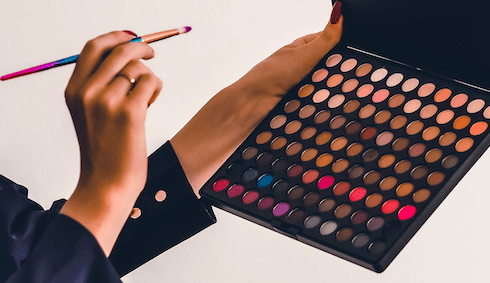Get the Lebanon look: the appropriation of Middle Eastern beauty
I was born in Lebanon but grew up in Dublin during the 2000s. I have many fond memories of my childhood in Ireland but being the only Arab in a sea of predominantly white faces, I often fell victim to taunts and comments about the way I looked. The novelty of my long eyebrows, dark skin and thick hair was subject to mocks and laughs from all directions.
Today, we live in a highly connected world and space has been made for Middle Eastern looks, albeit by proxy of white influencers. There’s something unsettling about it. The same features that my tormentors mocked would ultimately be their motivation for slathering on fake-tan, saving for butt implants, and opting for eyelash extensions. What bothers me most is the need for approval- the Middle East became cool only when the West said so.
Unlike their neighbouring European countries, MENA countries have had a rocky turn of the century
This is a trend that I haven’t just observed in Dublin or the UK, but in Beirut too. Lebanon is no stranger to Western superficiality – at least one in three Lebanese women have had work done. The Lebanon First National bank even goes as far as lending people up to $5000 for plastic surgery.
Plastic surgery is a common occurrence not only in Lebanon but in many Middle Eastern and North African (MENA) regions. The need to look beautiful is so overwhelming among Arab women that I often feel underdressed or sub-par in one way or another when I go to Lebanon. It’s not uncommon to receive negative passing comments about the shape of your ears or your weight, or that hole in your sweater when meeting someone new or visiting family in Lebanon.
Yet, the pressure in the Middle East to look ‘perfect’ by Western beauty standards goes much deeper than superficiality. Unlike their neighbouring European countries, MENA countries have had a rocky turn of the century. In Lebanon, buildings still bear the scars of various wars, and its people live in constant uncertainty. Perhaps women compensate for such destruction by perfecting themselves. Perhaps the desire to mirror European beauty is hope for Western-like stability in the home state. My sister believes that the Lebanese civil wars resulted in a shortage of men, which ultimately led to competition among women that created such a powerful and damaging culture.
This perpetuates the damaging beauty ideal of the “ethnically ambiguous white person”
So, what happens when the desired Western look comes full circle? Does the number of cosmetic surgeries among Middle Eastern Women fall, while rates skyrocket amongst others hoping to appropriate the look? Unfortunately, not.
When powerful non-Arab influencers adopt Arab beauty, they aren’t ‘celebrating the culture’, as some like to think, but actually branding that beauty as their own. With the underlying whiteness of it all, key Arab features are left behind, such as the characteristic nose that young Mediterranean girls are taught to hate until they’re old enough to ‘fix’ it.
This perpetuates the damaging beauty ideal of the “ethnically ambiguous white person”. The issue with appropriation isn’t the political correctness of it, it’s the screaming reminder of colonialism and the oppression that comes with it.
It’s only recently that I’ve let my culture in and my natural hair come through
The Arab girl influencer look might allow us actual Arab girls to relax a little bit, but the fact of the matter is that if you can’t pass for white, you’re still unwelcome. When I tell people I’m Lebanese, they tell me I look Greek or Italian, a subtle hint to let me know that I’ve passed the white test.
On multiple occasions, I have been introduced as “half Irish, half Lebanese” by people who know very well that both my parents are Lebanese. I don’t blame them; I too am guilty of Westernising myself. I bleached my hair blonde for years and hardly spoke a word of Arabic. It’s only recently that I’ve let my culture in and my natural hair come through. Could it possibly be because Kylie Jenner and Ariana Grande made it okay? If so, should I be grateful that I can finally embrace my heritage, or angry that it took 21 years to feel just the slightest bit accepted?

Comments